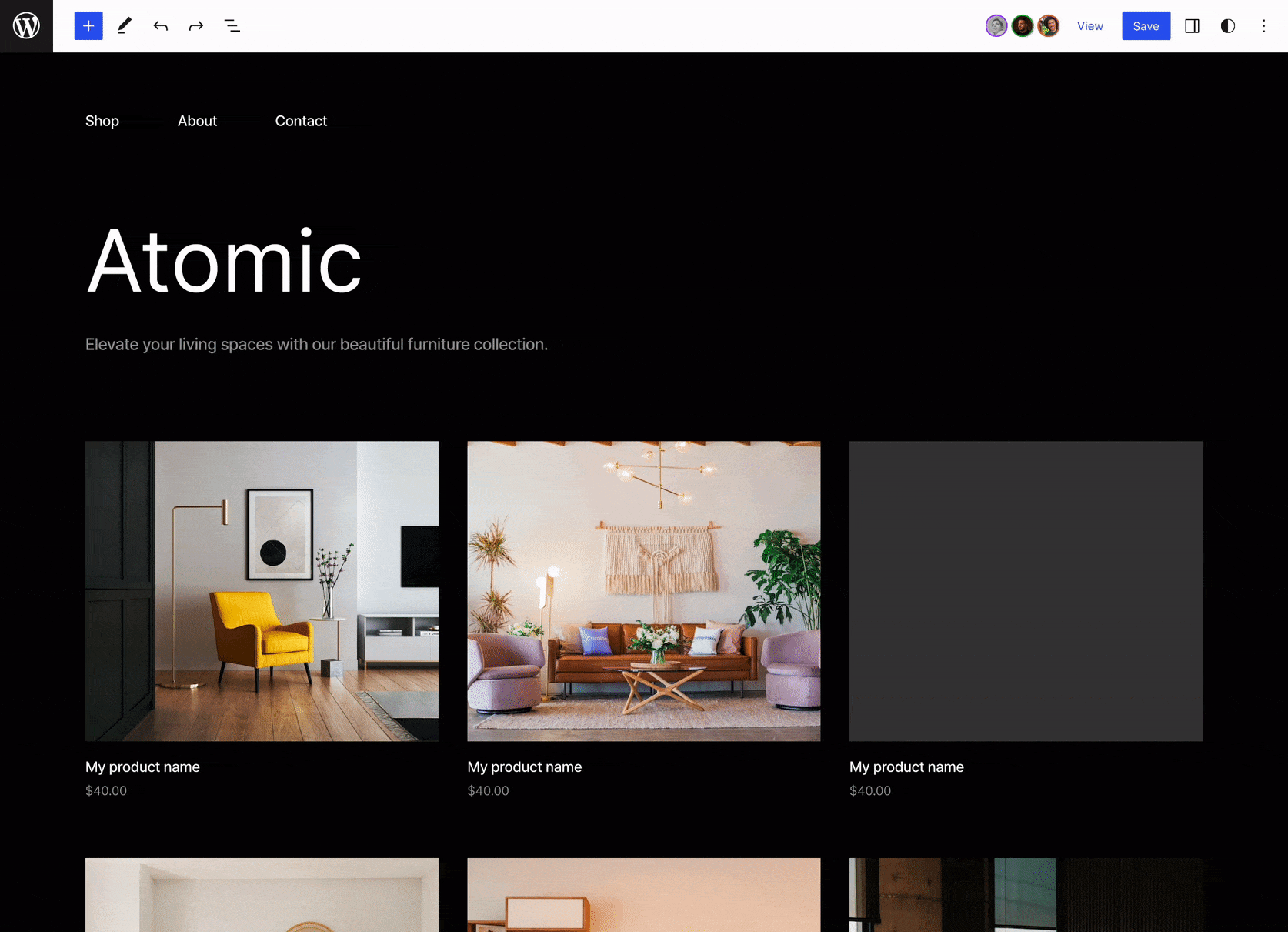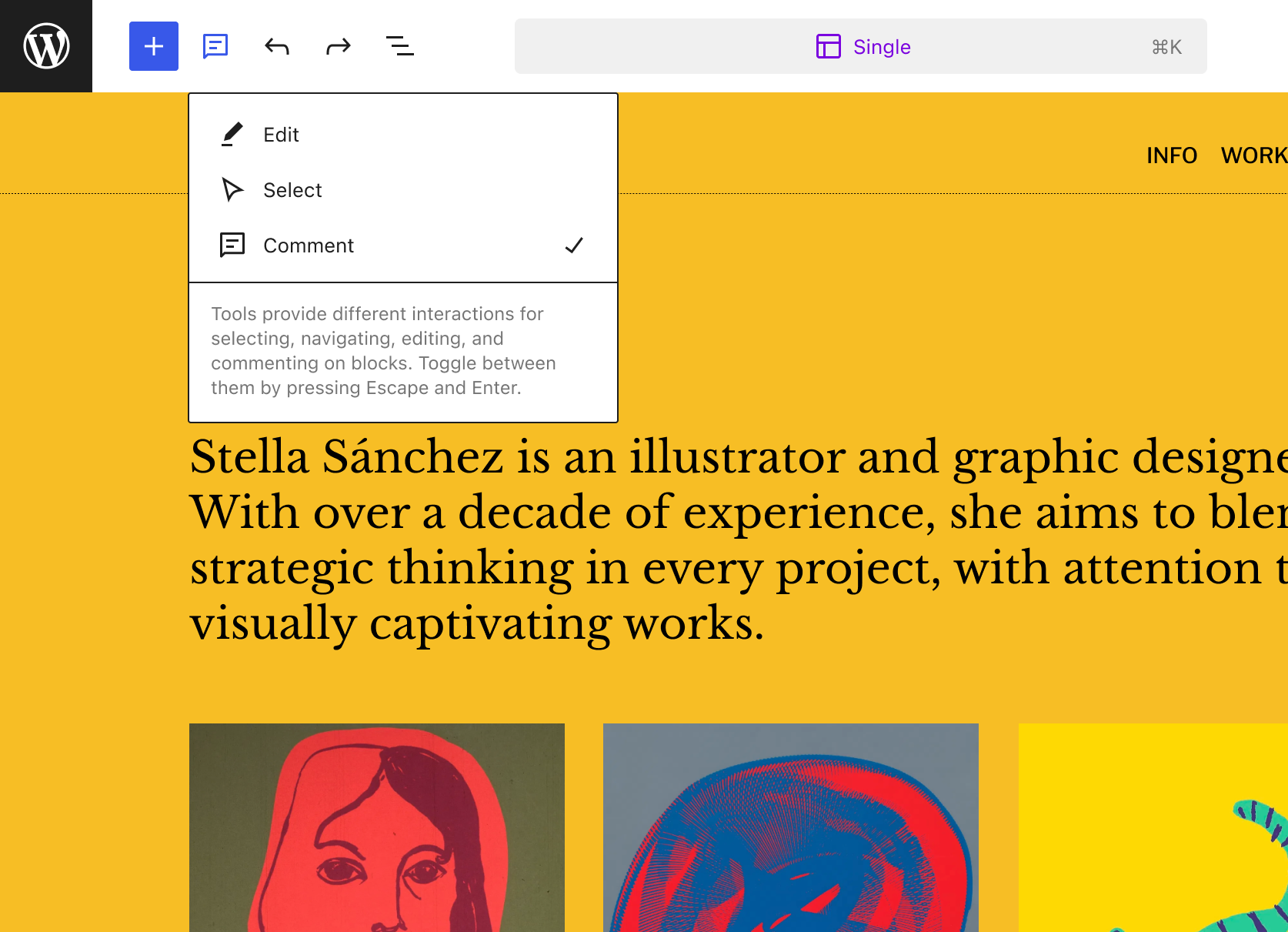In a series of four posts, Gutenberg lead architect Matías Ventura has outlined the project’s phase 3 plans for Real-Time Collaboration, Workflows, Revisions, and the Media Library. WordPress 6.3 is set to be the final major release of Phase 2, which focused on Customization.
Phase 3 will shift focus from the editors and move into other parts of the admin in an effort to bring seamless collaboration to WordPress.
“The primary aim of real-time collaboration is to build functionality into the block editors so that concurrent collaboration, shared edits, and online presence of peers are possible,” Ventura said. “Supporting these workflows is not just about concurrency, though, but also about lifting restrictions that have been present in WordPress for a long time, such as locking a post when two people try to edit at the same time.”
The technical challenges here are in making this available to all WordPress users, even those on the most economical hosting environments. Ventura shared a quick preview of what that might look like, along with the scope of the tasks that would be part of this effort.

In the Workflows document, Ventura details collaborative features that will be part of this phase, including allowing users to add comments, suggest edits, and tag other users for peer review. These enhancements would apply to both content creation and design changes on block themes.
There are some interesting projects listed within the scope of this section, including a publishing checklist, sharing draft links with permission controls, and exploring hook points for version control systems to take over internal revision systems if desired.

Users can expect that Revisions will also be getting some major improvements as part of the Collaboration phase of the project.
“As part of improving the overall experience, we should also go beyond document level history and explore how the interface could let users browse through single block changes and offer the ability to restore them individually rather than requiring full post restores,” Ventura said. “For global styles, we should evolve the revisions panel to allow comparing two revisions side by side. For synced patterns, we could allow browsing edit history with side by side and overlay comparison tools.”
Long-awaited improvements to WordPress’ Media Library are also considered part of this phase.
“The main goals are to expand the media management capabilities, unify the block edit and single media interfaces, and improve upon the major media flows,” Ventura said. He highlighted a few major areas that may get some enhancements, such as categorization and tagging, better handling of attached media, and design improvements to the library view.
Other Media Library projects may include a revamp of the image editing interface, which remains somewhat unintuitive at this time. Ventura proposes these tools, such as cropping and thumbnail browsing, be updated to align more with the current block editor tools.
Contributors may also be exploring contribution to the commons from WordPress, along with improvements to attribution.
“As we look into expanding the presence and touch points of Openverse, it’d be interesting to see how contributions to the commons could work directly from a user’s WordPress install,” Ventura said. “Another area to look at is improving handling and presentation of other media types (audio, video, files) and their connection with blocks and the block APIs. We should resurface work on a native Playlist block, ideally powered by the Interactivity API.”
Reactions to the outlined vision and scope for the Collaboration phase have so far been positive, as users and contributors are eager to see a strong focus come to some of the other parts of WordPress that have not had much attention for years. The newer real-time collaboration features that will take WordPress beyond the days of locking posts while another person is editing, have the potential to speed up content creation and editing for groups working on the same website.
“Very much looking forward to this phase. I think it will really enable larger teams to work on posts much easier,” WordPress developer Rich Holman commented. “I’ve mentioned this before but the ability to continue working on a published draft without the front-end updating seems important especially with more editors working on something, especially if doing more experimental edits.”
For more details on the features being considered for this phase, check out the Phase 3 overview post, along with Ventura’s more recent write-ups on how contributors will improve and expand WordPress’ collaboration architecture with updates to Real-Time Collaboration, Workflows, Revisions, and the Media Library.
WP Tavern


Leave a Reply
You must be logged in to post a comment.